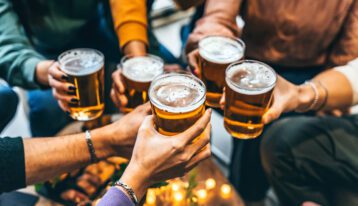By Sandy Baker
Opioids continue to be one of the nation’s top causes of overdose deaths.
The National Institutes on Drug Abuse reports 130 people overdose on these drugs every day in the United States. The same report finds between 21 and 29 percent of people who are prescribed opioid painkillers misuse them and as much as 12 percent develop an addiction as a result.
Many of these people suffer from a substance use disorder as a result of purchasing opioids illegally. However, others become addicted through the use of drugs prescribed by their doctors to treat pain.
Why Are Doctors Limiting Opioid Use?
Most of the time, doctors prescribe these drugs for short-term use. They also limit how much of the drug is used by any given patient. These medications, when used properly, can be very effective at reducing acute forms of pain. They’re never meant to be taken long term for chronic pain. Nevertheless, it takes very little time for an addiction to form. As a result, many people become chemically dependent on opioids.
Physicians themselves are faced with a challenging situation. Many don’t want to prescribe these medications for fear of abuse, but they also need to meet patient demand to avoid lower satisfaction scores. Some doctors have been sued by patients for refusing to prescribe opioids.
Physicians also recognize the risks of being labeled a “pill mill” by the authorities. Some states are cracking down on doctors who seem to overprescribe. In March of 2016, the U.S. Centers for Disease Control and Prevention launched the National Pain Strategy, aimed at reducing the number of prescriptions written for opioids. Some states turned these guidelines into laws, limiting a doctor’s ability to provide only small amounts of medication for just a few days at a time.
What Are the Alternatives to Opioid Painkillers?
When patients need treatment for pain, they will go out of their way to find it. Because of how debilitating chronic pain is, many who cannot obtain medications through doctors turn to illicit forms of the drugs—such as heroin and fentanyl. To avoid this, it’s important to investigate alternative pain relief options that can help.
Non-Narcotic Medications
For some people, the use of non-narcotic drugs, such as ibuprofen, may offer support. These medications work to soothe nerves and reduce inflammation. In turn, this can help to limit the pain a person is experiencing. These drugs are not habit forming, but may provide many men and women with the relief they need.
Yoga
Yoga is not only beneficial for pain relief, but it can also help to curb the symptoms of withdrawal those addicted to opioids may suffer with during this transition. Yoga stimulates blood flow and encourages the release of “feel good” hormones in the body.
Nerve Blocks and Injectables
Injections into specific areas of pain can offer some relief for many people with nerve-related or joint-related chronic pain. Nerve block medications can be used after surgical procedures or serious injuries to provide a way to “turn off” the pain signals going to the brain. With the push of a button, patients can medicate themselves in this localized area, reducing the risk of any medication entering into the bloodstream. Injectables, such as steroids, can work to improve pain for a period of weeks to months.
Massage Therapy
Many patients also benefit from massage therapy. More intense than a typical stress-related massage, this method works to target specific areas of pain and inflammation in the muscles and soft tissues of the body. It also stimulates the body’s ability to recover from injury and heal naturally.
Cognitive Behavioral Therapy
The use of cognitive behavioral therapy can offer pain relief in several ways. This is a type of talk therapy that helps you learn skills to change negative thought patterns and behaviors. It can also help change the awareness of the pain and aid in the development of better coping skills. This can help reduce the impact pain has on your daily routine.
Fighting Addiction and Treating Pain
You don’t have to live with pain or addiction. The Ranch at Dove Tree’s personalized treatment options can resolve these concerns for you and provide an opportunity for a brighter future.








